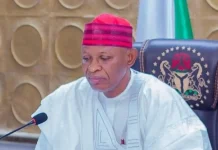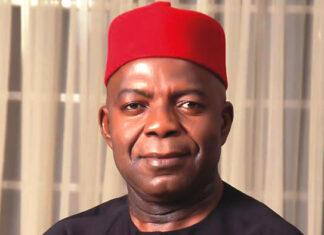The Federal Inland Revenue Service (FIRS) says the six percent stamp duty charge on tenancy previously announced will only apply to tenancy and lease agreements that are above 21 years.
Speaking on Saturday at a webinar organised by OTISVIP, Muhammad Nami (pictured), the FIRS executive chairman, said stamp duty charges on tenancy and lease agreements would be graduated.
The webinar was themed ‘Stamp Duty: The New Black Gold?’.
Thus, tenancy and lease agreements less than seven years would carry 0.78 percent stamp duty while agreements between seven and 21 years will carry a three percent charge.
According to a statement by Abdullahi Ismaila Ahmad, director of FIRS communications and liaison department, Nami said Nigerians should accept the fact that the country can no longer rely solely on crude revenue to fund the budget, hence the need to embrace taxation as the new normal of national fiscal policy.
Panellists on the online discussion were Alexander Ezenagu, an assistant professor of taxation at HBKU, Qatar; Damilola Anwo-Ade, managing partner at Sprout Digital; Mohammed Jega, director of VoguePay; Sam Onyemelukwe, managing director of Trace Anglophone West Africa; Japheth Omojuwa, founder of The Alpha Reach; and Mathew Gbonjubola, FIRS director of tax policy.
“While all panellists agreed on the need for taxation to complement government’s revenue flow from natural resources, a lively debate ensued on the timing of the stamp duty campaign and the public debate surrounding the application of tax revenue in the nation-building processes, especially in building public infrastructure,” the statement read.
“The panellists stressed the need for prudent management of tax revenue even as they enjoined Nigerians to embrace the fact that the tax net needs to get wider to accommodate more citizens for holistic national development.”
Gbonjubola said citizens must reassess the notion that Nigeria is rich explaining that “in terms of gross domestic product vis-à-vis our population, Nigeria is not a rich country when compared to a country like Botswana”.
He also stated that that the stamp duty is levied on the instrument of the transaction and not on the payment itself. (The Cable)


























